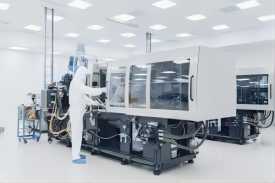Stainless steel is compatible with various sterilization methods commonly used in medical facilities, such as autoclaving, gamma radiation, and chemical sterilization. This ensures that medical equipment made from stainless steel tubes can be effectively sterilized to maintain aseptic conditions and prevent infections. Stainless steel offers excellent corrosion resistance, even in harsh medical environments where exposure to bodily fluids, disinfectants, and other chemicals is common. This resistance to corrosion ensures the longevity and reliability of medical equipment, reducing the risk of premature failure or contamination. Besides, stainless steel is biocompatible, meaning it is well-tolerated by the human body and does not elicit adverse reactions or tissue responses when in contact with bodily fluids or tissues. This makes stainless steel tubes suitable for manufacturing medical devices that come into direct or indirect contact with patients, such as surgical instruments, implants, and diagnostic equipment. Stainless steel tubes provide high strength and durability, allowing medical equipment to withstand the rigors of clinical use, handling, and sterilization processes. They maintain their structural integrity under stress, ensuring the reliability and safety of medical devices during surgical procedures, patient care, and diagnostic tests. Stainless steel tubes can be easily fabricated into complex shapes and configurations required for various medical equipment designs. They can be welded, bent, and machined with precision to meet specific manufacturing requirements, enabling the production of customized medical devices tailored to the needs of healthcare professionals and patients. Medical equipment made from stainless steel tubes is relatively easy to clean and maintain, thanks to the material's smooth and non-porous surface. This facilitates thorough cleaning and disinfection procedures, reducing the risk of cross-contamination and ensuring compliance with infection control protocols in healthcare settings. Stainless steel is a well-established material in the medical device industry and is widely accepted for use in manufacturing medical equipment. It meets stringent regulatory standards and requirements for safety, quality, and performance, providing assurance to healthcare providers and regulatory authorities regarding the suitability of stainless steel tubes for medical applications.









